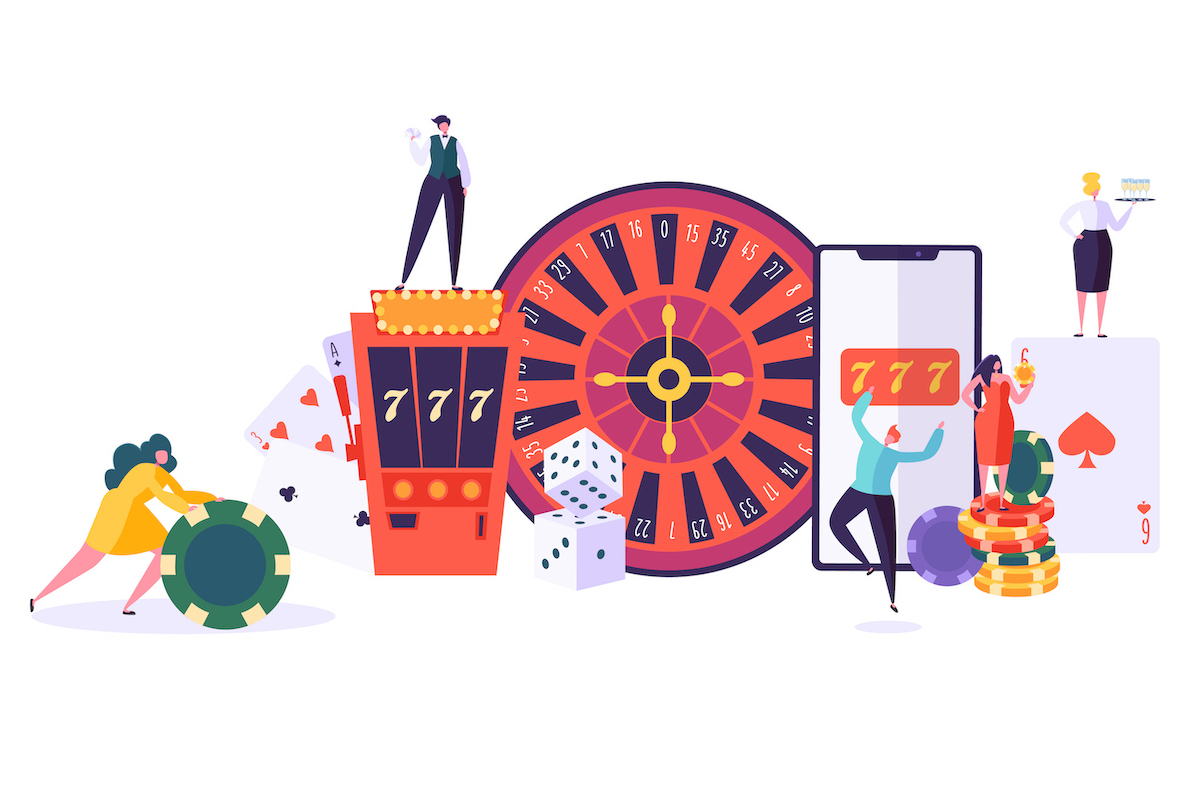
Casino and Gambling Concept. People Characters Playing in Games of Fortune. Man and Woman Play Poker, Roulette, Slot Machine. Vector Illustration
Compulsive gambling can have a devastating effect on your life. You may find yourself asking friends or family for money, or even borrowing from them, often to pay for expenses related to your gambling habit.
Gamblers and affected others broadly conceptualize responsibility for gambling harm, and attempt to apply responsible gambling messages to their experiences. This research underscores the need to reframe public messaging away from individualized responsible gambling strategies and toward evidence-based frames that complement broader legislative and other changes.
Mood Swings
Gambling is fun and harmless for those who use it responsibly, but for some it can become an unhealthy obsession. People with gambling problems can find it hard to stop, even when they realize they are hurting themselves and others. Their actions can strain relationships and cause financial disaster. They may lie to friends and family, stealing or committing fraud to fund their addiction and try to make up for losses by betting more money.
Mood swings can be a sign of addiction and should not be ignored. If a friend or loved one is always depressed or irritable, it’s important to ask them about their mental health.
It’s also a good idea to help a loved one who is struggling with a gambling problem by stopping any enabling behaviors like paying for expenses or lending money, Sternlicht says. Another way to support someone is by avoiding casinos, racetracks, bingo halls, off-track betting sites and social activities that involve gambling.
Loss of Control
Many people who gamble become preoccupied with the thrill of winning or losing. The feel-good neurotransmitter dopamine is released whenever a bet wins or loses, so it’s easy for people to keep playing, even if they’re spending more money than they have.
A gambling addiction can destroy family relationships and cause financial difficulties. It’s not uncommon for someone with a gambling problem to steal or lie in order to fund their habit, and this can be a serious crime.
It’s important to know the signs of a gambling addiction so that you can help a friend or family member get professional treatment. Behavioral therapy can teach people to control their urges by using systematic exposure and changing problematic beliefs and thoughts that encourage gambling. This can reduce the need to gamble and prevent negative impacts on their life. Moreover, online gambling sites can set time and deposit limits for patrons so that they can’t spend too much.
Financial Issues
Gambling addiction can have devastating effects on a person’s financial stability. Addicts may lose large sums of money and feel compelled to keep gambling in an attempt to recover their losses. This can lead to massive debts that often jeopardize the individual’s physical and emotional health. Gambling addicts also tend to miss work and steal money or commit fraud in order to fund their addictions, which can ultimately lead to jail time.
Responsible gambling is about ensuring that all bets are made within an individual’s affordable personal spending limits. The idea is that gambling should be viewed as an entertainment activity and not as a source of income. It’s important for people to understand that problem gambling is a real issue and that it can affect anyone, regardless of age, background or location. Those who live closer to casinos are more at risk of becoming problem gamblers, so it is recommended that they take an alternate route to work or change the channel when watching sports in order to avoid temptation.
Legal Issues
Gambling is the act of risking something of value—money or possessions—on an event with an uncertain outcome, in order to gain a prize. It’s an addictive activity that can affect people of all ages, sexes and socioeconomic backgrounds.
In severe cases, gambling addiction can make a person desperate for more money to gamble with. This can lead to illegal activities like petty theft, credit card fraud, embezzlement and even bigger crimes such as robbery. In addition, the addiction can cause emotional and psychological damage to family members who rely on the addict for financial or emotional stability.
Unlike some other addictions, it can be difficult to tell when someone has a gambling problem. For example, it’s easy for people with high incomes and personal bank accounts to hide their gambling habits from others, but this is not the case for everyone. Fortunately, there are resources such as hotlines that help individuals and their loved ones.







